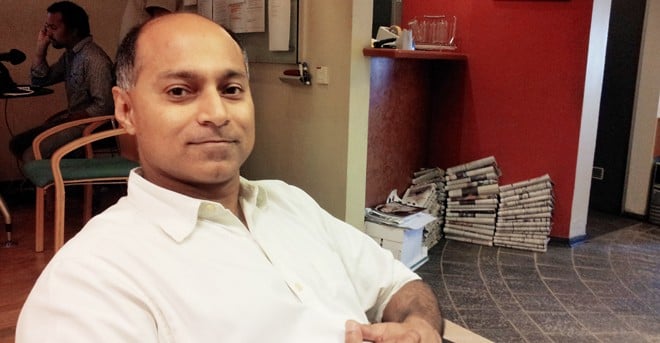

The News on Sunday: How do you view the government’s economic policies which some see as the Ishaq Dar side of the economy. Some see these measures like rupee appreciation, IMF loan, Euro Bonds, 3G-4G calculation as short term. Is that a correct assessment, both to see them as Dar’s initiatives as well as think of them as short term?
Khurram Husain: It’s fair to see them as the government’s initiative, although I’m not sure I’d specifically credit Mr Dar. But they are, indeed, short term (except perhaps for the 3G-4G license auction), and purchased almost entirely with borrowed money. The rupee has been stabilised with Saudi money whose quid pro quo we are left guessing at, and the Euro Bonds come with a very high interest rate. Do we know what growth rate we’ll need to achieve to afford the debt service cost associated with those? The IMF loan has underpinned a lot of the foreign investor confidence seen in the Euro Bond auction. The macroeconomic turnaround that Dar is talking about is real, but it is superficial, purchased with borrowed money.
TNS: What may be the long term measures in your view? Keeping in view the challenges like law and order, energy crisis, the judiciary’s interventions in executive domain, aren’t these short term measures justified?
KH: The long term measures are now more important than ever, because if the structural measures that are now set to begin don’t happen, the turnaround will dissipate and we will be left with a very high price tag on the borrowed funds. Law and order is a key challenge, as is energy and tax reform. These need to now be urgently handled in a way that builds the investor confidence.
TNS: Are you satisfied with the government’s efforts in bringing in local and foreign investment?
KH: So far, investors have voted yes on government debt securities, but no on large-scale fixed capital. It might be too soon to talk about fixed investment though, those decisions come with a lag, but getting the government out of its business of borrowing is key to making room for investment to take place.
TNS: There is rarely if ever any mention of improving the tax collection and enhancing the tax base. The only time it is mentioned is when there is talk of curtailing the defense budget and how that cannot be reduced and we should have a widened tax base, instead. Do you have any hopes the present government will pay attention to this side of revenue generation, especially from the business community?
KH: I always have hope, perhaps that is a fault. It’s critical that they take the right steps to build up the revenues and not look for shortcuts. The business community is more concerned about documentation of their transactions than about paying taxes, and here the government has to tread a very fine line because if they press too hard on documentation they can spark capital flight. This is one of their biggest tests, and it begins with closing some key loopholes and exemptions, something they are committed to doing in the forthcoming budget.
TNS: How do you look at the semantics this government’s performance in the last one year? Does it carry the perception of clean and transparent dealings in its economic policies? We have recently seen some surveys (Gallup, etc,) praising the economic performance of the government.
KH: There is a perception that things are being brought under control, and investors share this perception in their willingness to invest in longer term government debt securities, for example. It’s important to acknowledge this, to give credit where it is due. But the real challenges lie ahead for the government, and it’s in the structural reforms that the real game will begin.
TNS: What is going to be the real or likely impact of these economic policies on the common man? We haven’t heard much about the youth packages that were announced.
KH: Some halt in the increase in the rate of inflation is possible, as well as improved capacity of the government to spend on social sector. The common man will only see the results indirectly though. Regarding special "schemes" like youth packages or laptop distribution, the less we have of that sort of thing the better. They are very inefficient ways to redistribute resources.